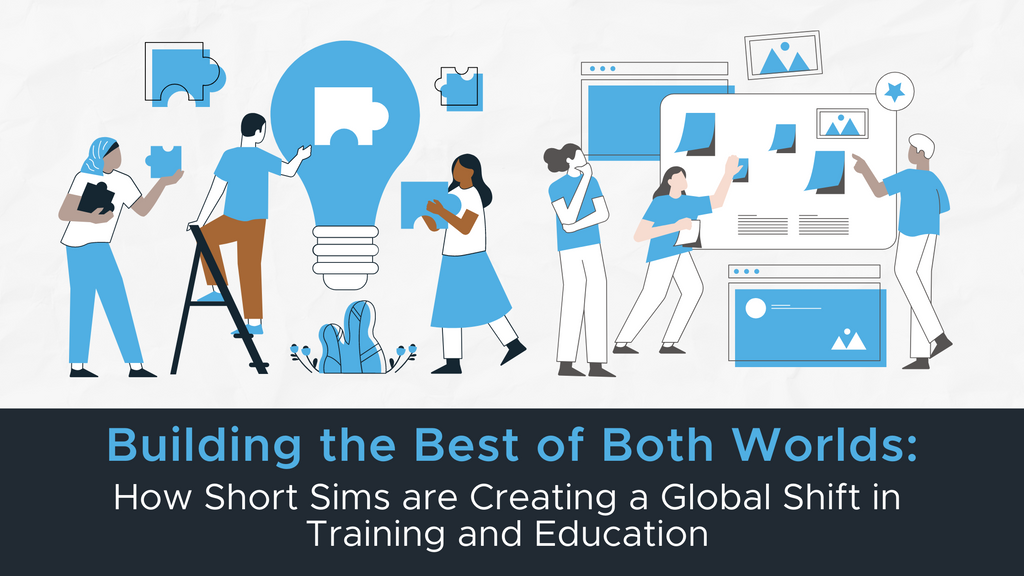Building the Best of Both Worlds: How Short Sims is Transforming Training and Education

Those lectures, textbooks, workbooks, and tests are as bad as you think for helping us learn.
The Max Planck Institute just published a study highlighted in Neuroscience News on December 3rd. The report concludes that the use of "symbolic, abstract descriptions to [teach and] assess" is inferior to "experiencing that information at first hand—for example, in a computer simulation".
The implications of this on all of education is staggering. All those standardized tests, all those Kahn lectures, all those Harvard Case Studies may be doing a lot less good than we had hoped.
Programs that matter use simulations. Experiences, with decisions and feedback, may beat them all. Simulations that are streamlined enough to be easily developed and deployed may just be what we need to save education. For example, airline flight simulators, Harvard Business School case studies, boot camps, and moot courts all focus on teaching "learning to do." But they are expensive and unscalable.
Most other educational programs have settled on lectures and workbooks. These "learning to know" approaches are cost effective, timely, predictable, and scalable. But over time, education’s heavy reliance on “learning to know” programs have been devastating. It has put education out of step with sponsors and learners who want their programs to have a real-world impact. We want to learn how to be leaders, not learn about leaders.
Short Sims solve this terrible choice. Short Sims provide the advantages of "learning to do" with the ease of workbooks with two options:
Broad Short Sims are more like test driving a car, except players are test driving leadership, or a new job, or negotiating. They get a feel for something by making a series of interesting decisions in context. These are safe and mentored. Most corporations love the broad Short Sims. They know employees are busy and want the right answer in a way that sticks. The tolerance for frustration is low.
Narrow Short Sims are more like labs. They are experiments. Players make multiple decisions that cumulatively either succeed or fail. Players must form and test theories. What is the right team to assemble to chase that deal? In what technology and talent should we invest to compete? Which document contains the fraudulent information? What is a sustainable diet? These are learner driven. Failure is the default state that must be overcome with focus and persistence. But the lessons are really earned. Conviction is built.
